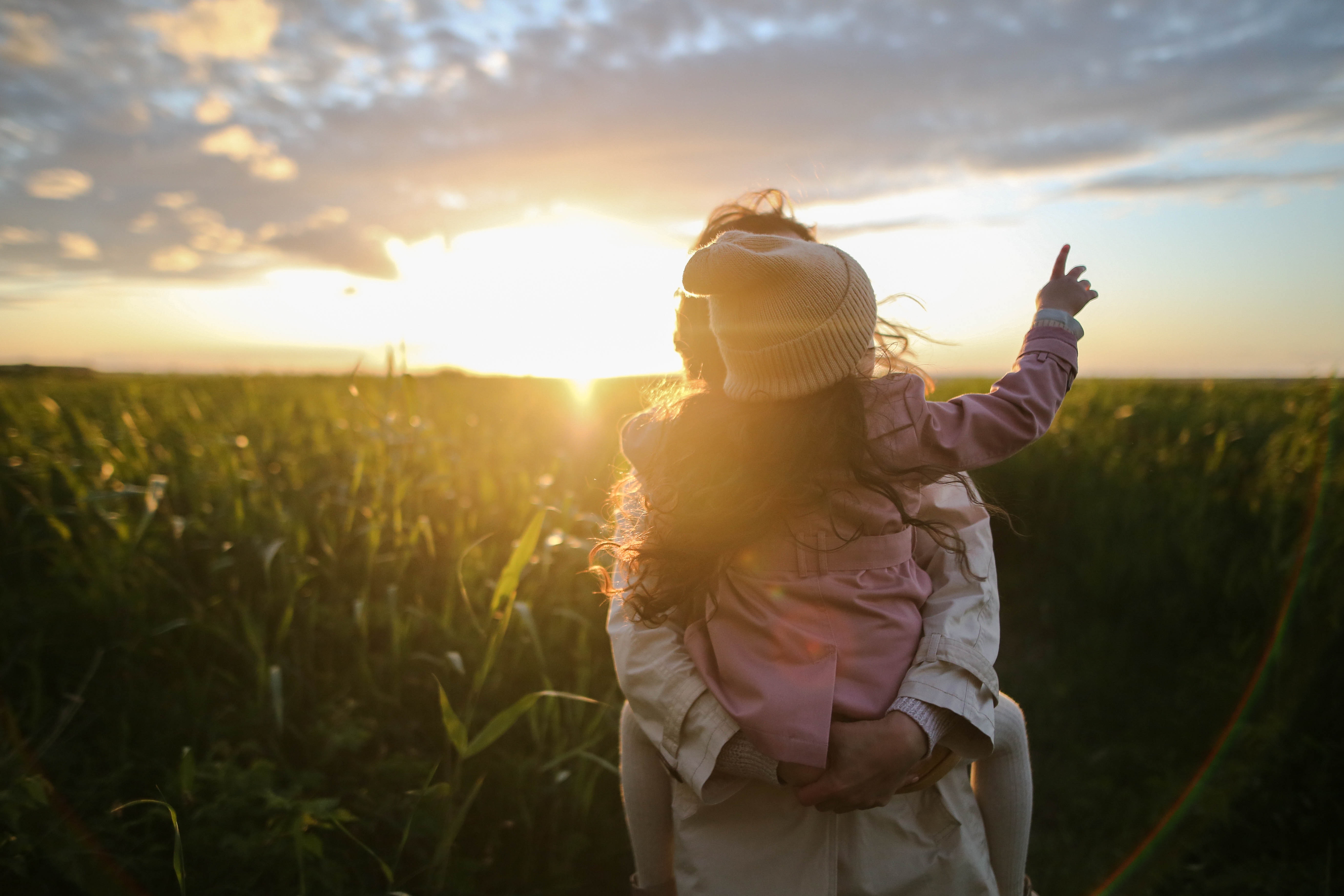 It was a Friday afternoon just like every other one we’ve had. As we made our way in from the garage, I juggled the contents of our pool bag as my 2-year-old daughter ran to the bathroom, insisting she didn’t need my help. Two minutes later, I was in the bathroom on hands and knees attending to a potty accident, feeling frustrated. Ahh, toddler life. While cleaning up the bathroom, I heard the beginning of the 75th sibling battle of the day forming in the next room. She had found a way to push her big brother’s buttons, and she wasn’t going to give it a rest. My four-year-old son angrily screamed that his sister was stepping on his monster trucks, his most prized possessions.
It was a Friday afternoon just like every other one we’ve had. As we made our way in from the garage, I juggled the contents of our pool bag as my 2-year-old daughter ran to the bathroom, insisting she didn’t need my help. Two minutes later, I was in the bathroom on hands and knees attending to a potty accident, feeling frustrated. Ahh, toddler life. While cleaning up the bathroom, I heard the beginning of the 75th sibling battle of the day forming in the next room. She had found a way to push her big brother’s buttons, and she wasn’t going to give it a rest. My four-year-old son angrily screamed that his sister was stepping on his monster trucks, his most prized possessions.
I could hear the scenario escalating. With weak optimism, I suggested she join me in the bathroom instead of “playing” with big brother. No answer. More screaming. Still cleaning up pee. With building desperation, I reminded my son that she’s just two, she won’t hurt the trucks. More screaming.
The sound I heard next is hard to describe but instantly recognizable. After a struggle between them, my son had thrown a monster truck at her, hitting her head. And then…silence.
This event was followed with a blur of “sorry” and “it’s her fault” coming from big brother as I flew to my feet and out of the bathroom. She walked toward me, arms outstretched, horrified at the injustice of it all and surely in pain. Sweet girl. I swooped her up and began my usual routine of hugging and kissing the pain away.
We stood in the bathroom doorway, we walked over to the window, I sat her on the counter to take a look. Just waiting for her to take a breath and let it all out in that first cry. But with every second that passed, her face was just frozen, eyes and mouth wide open. Body stiff. Arms waving in panic. The next 10 seconds or so were a blur of confusion and fear on my end.
She’s never gone this long without breathing. Is she choking? How can I help her? What do I do next?
I began blowing in her face, melting into a paralyzing moment of fear. Her sweet little face was quickly turning blue, and her body started to move erratically. The very next second, her body went completely limp in my arms. Her entire upper body flopped back, and she wasn’t moving at all. My son screamed in horror, having never seen her like this before. It’s hard for me to describe the wild panic that filled me when I saw her body give up like that. I wouldn’t wish it on any parent.
When motherhood surprises you with a moment like this, your response is not one you choose. It’s predetermined, it’s in your gut. There I was alone in my house with my two babies, one of which was unconscious. The weight of her dependence on me had never felt so heavy. Every second felt like a blurry, out-of-body nightmare.
My gut told me to find another adult to get me through this. I remembered waving to my neighbor as we pulled in, no less than five minutes earlier. She was out in her front yard with her kids. I squeezed my little girl tight and told my son we were running to get help. I grabbed my phone because if I didn’t see her face as our garage door opened, we were onto 911 next.
There she was, as the door opened (too slowly, it seemed). I ran, holding a limp little girl, screaming for her help. Mothers can recognize panic from a million miles away. She ran to me, her own baby in hand, ready to take on whatever news I had for her. In all my years, I won’t forget her helping me through that moment. As I began explaining myself in breathless chaos, my sweet little girl came to. Sleepy and confused, she burst into tears and so did I. When you’re faced with a child emergency, there’s no time for tears. Everything I did in those two horrible minutes was a function of survival. There’s no room for your own emotions when your baby is in danger. I sat in my neighbor’s driveway, sobbing as it all sank in for me. Big brother next to us, our dog four houses down because I left the door wide open. Just holding my girl, and thanking God it was over.
It took me a week, a trip to the doctor, and a handful of nightmares to get over that first time. It’s happened to us twice since then, neither of which have been any easier. Just, more prepared for. In my discussion with our doctor and extensive online research, I’ve been reassured that a child’s body knows exactly when to faint. Whether they’re holding their breath out of anger or crying, when they need to breathe, their bodies know what to do. The moment she went unconscious, she began to breathe. I was told again and again that there really was no damage done to her, just to mommy’s heart.
I share this story because I wish I were more informed on the nature of breath-holding spells before it happened to us one Friday afternoon. No parent is ever prepared to see your child lose consciousness. From the minute we become parents, our bodies are hard-wired to protect our children from every possible danger. To save the day in every scenario. It’s a scary job, raising a child.
In the event you experience a breath-holding spell with your child, experts at kidshealth.org advise the following:
- Stay calm. In most cases, there is nothing you need to do but wait for your child to regain consciousness.
- Lay your child flat in a clear, safe space.
- Check your child’s mouth for food or any other object that could cause a choking hazard.
- If your child does not regain consciousness within one minute or remains blue, call 911.
Note: As always, contact your doctor and talk through what happened. These spells are an involuntary response to strong emotions like being angry, scared, or frustrated. They tend to occur in healthy children. Your doctor can help you understand what triggers a spell in your child, how to prevent future spells, and how to deal with them if they do happen.









I used to do it my daughter did it It is not big deal I know the first time is scary but if it is like what we did all you can do is startle her and she will start breathing or she will do it on her own If she passes out she will start breathing IT is scary but really no big deal according to the doctors She would turn blue and pass out but that is what made her start breathing normally again
My daughter does this too, she is 2.5 years old now and she started doing this at 6 months, only when she bumps her head or falls. The very worst was last summer, I accidentally bumped her because I didn’t see her behind me. She fell, I stayed calm as this was about the 5th she had done it and I was finally able to not panic, but that time she remained unconscious and not breathing for 4.5 minutes to the point of being very blue and she started seizing. It was the absolute worst and I still have fears and stress from it! Such a hard thing to see! Like you we had help from several neighbors as I screamed for help!
Comments are closed.